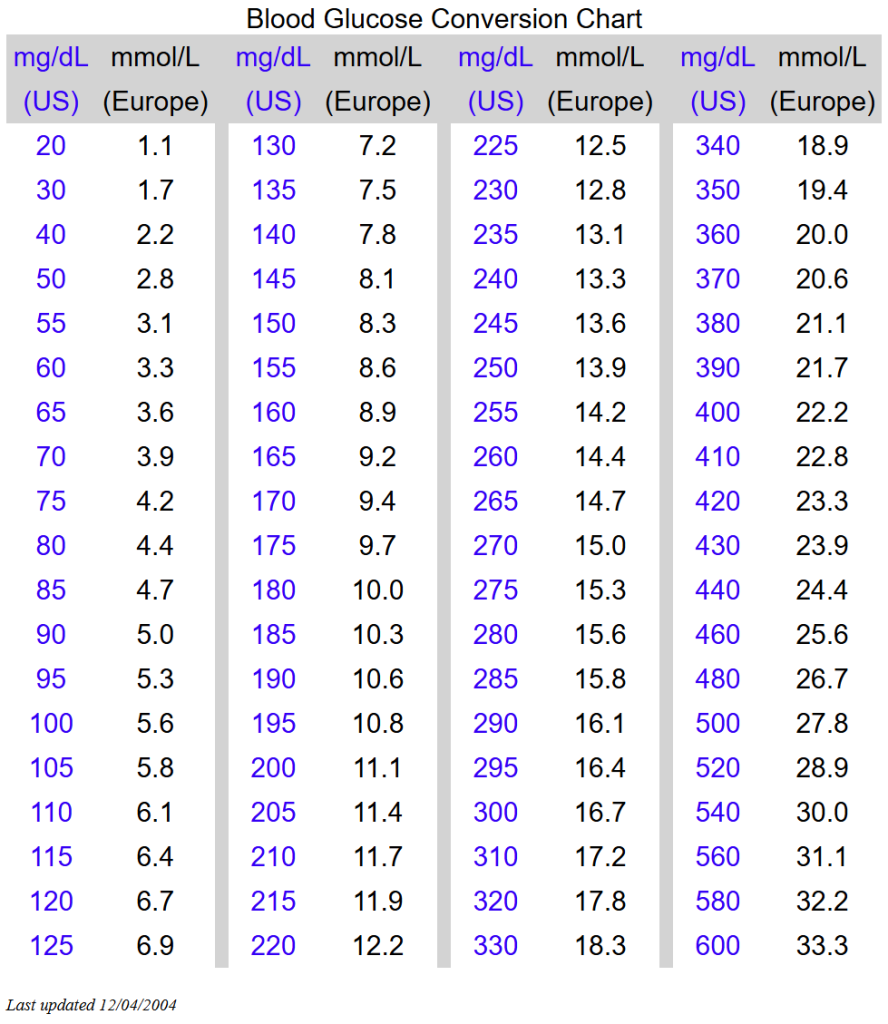Blood Glucose Converter Calculator
Convert between mg/dL (US) and mmol/L (Europe).
In the United States, blood glucose (bg) is measured in milligrams per deciliter (mg/dL). In many other western countries, BG is measured in millimoles per liter (mmoles/L) (such as England, Canada, and Australia). Because of these differences, it is very important to make note of the units of measurement in order that you interpret diabetes data correctly, especially when talking with someone from another country. Although FelineDiabetes.com attempts to always use mg/dL, please look at the units of measurement each time.
HINT: the decimal mg/dL value is always MUCH larger than the metric mmol/L value.
Decimal: milligrams per deciliter (mg/dL) (USA value)
Metric: millimoles per liter (mmoles/L)
Blood Glucose Converter Calculator
Most of our samples are run on whole blood obtained by needle draw or lancet pricking, so be sure to select “whole blood” for both inputs. Please check this with your vet/doctor, but while most home meters accept only whole blood, the reading they give may be adjusted to represent the glucose concentration in the plasma of the blood. This varies from country to country. You can only find out what your meter gives by reading the instruction booklet.
1 mmol/L = 18 mg/dL. Plasma = Whole blood × 1.12
Note: Requires JavaScript enabled in your browser.
Do the conversions yourself
The conversion factor between the two systems is approximately 18. Using this factor, you can do your own conversions as follows:
- Divide the decimal (USA) value by 18 to get the metric value: (mg/dl / 18 = mmol/L).
- Multiply the metric value by 18 to get the decimal value: (mmol/L x 18 = mg/dl).
This chart is available for your assistance:

